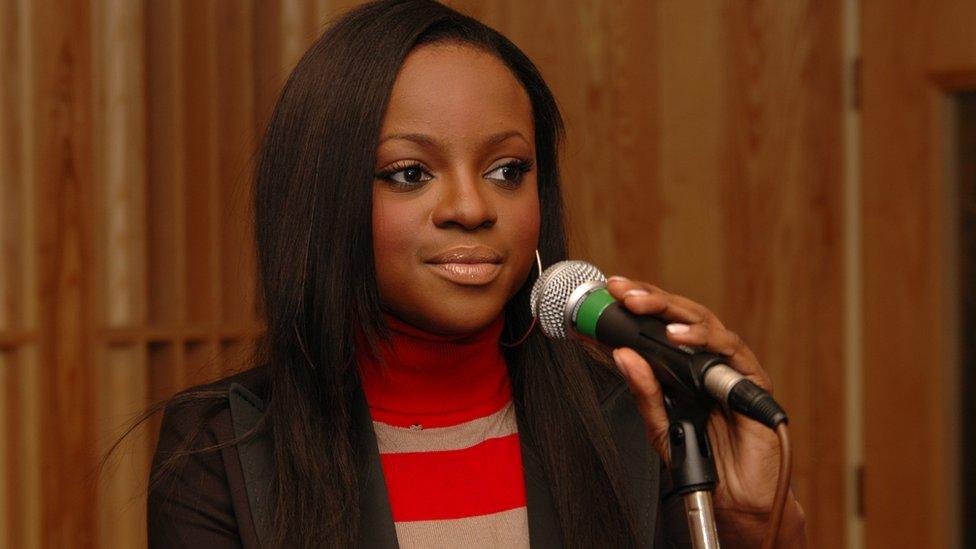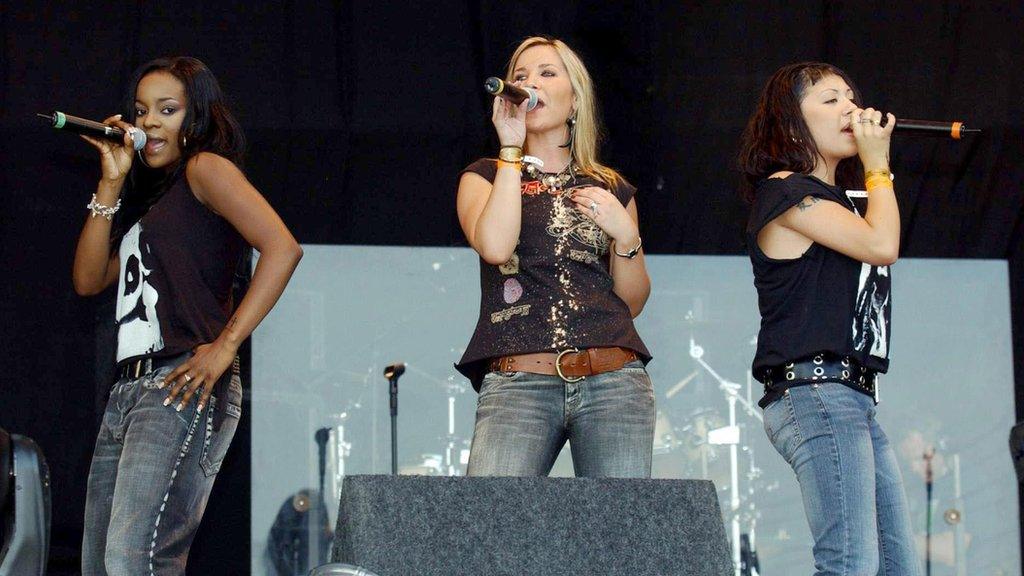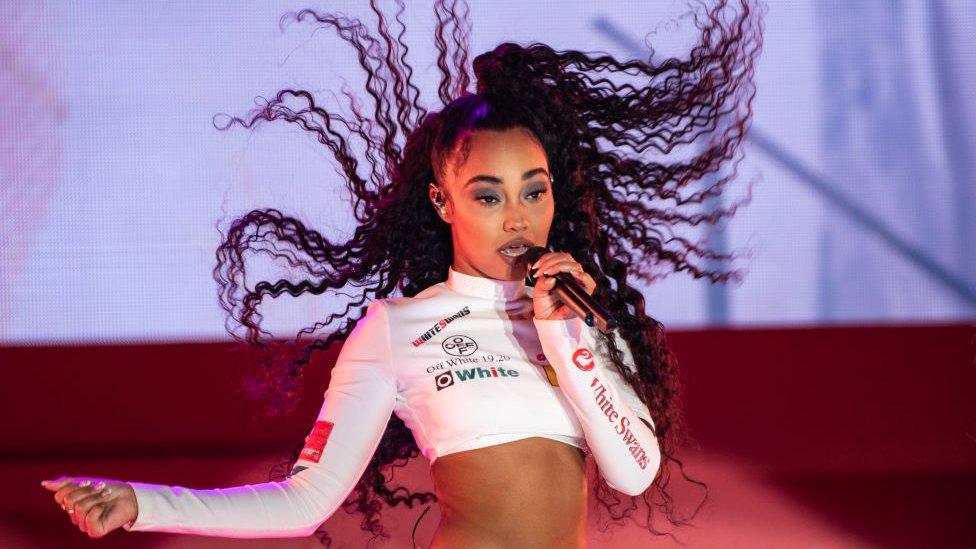Sugababes star Keisha Buchanan opens up about experiences of racism
- Published

Keisha joined the Sugababes as a teenager, scoring her first Top 10 hit at the age of 15
Pop star Keisha Buchanan has spoken of the "trauma" she experienced as the only black member of the Sugababes.
The singer, who was a member of the platinum-selling girl group for more than a decade, said she was often portrayed as "bully" who the other members were scared of.
"I have never bullied anyone in my life [but] after a while I felt like no one would believe me," she said.
The 35-year-old added the "scrutiny and judgement" had left her in therapy.
Allow YouTube content?
This article contains content provided by Google YouTube. We ask for your permission before anything is loaded, as they may be using cookies and other technologies. You may want to read Google’s cookie policy, external and privacy policy, external before accepting. To view this content choose ‘accept and continue’.
The negative stereotype of the "angry black woman" has its roots in 19th Century America, when minstrel shows, which involved comic skits and variety acts, mocking African Americans became popular.
Black women were often played by white men who painted their faces black and donned fat suits "to make them look less than human, unfeminine, ugly", Blair Kelley, associate professor of history at North Carolina State University, told the BBC in 2018.
"Their main way of interacting with the men around them was to scream and fight and come off angry, irrationally so, in response to the circumstances around them," she added.
The trope has been used against prominent black women such as Serena Williams and Michelle Obama in recent years.
Buchanan opened up about her experiences in a 14-minute YouTube video.
"I used to think racism was when someone directly looked at you and called you a racist word. I didn't realise that there are so many different ways that a person or people can be racist or prejudice," she said.
But after she found fame as a teenager, she started to notice that newspaper articles would paint her as "aggressive", "angry" and a "bully".

Sugababes went through several line-ups, but the most successful was (L-R) Keisha Buchanan, Heidi Range and Mutya Buena
Speaking on her YouTube channel, the singer said she had often taken the blame for line-up changes in the Sugababes.
"We would have fall-outs like most teenage girls but unfortunately when a member would leave, it was on a salty note," Buchanan said.
"That experience would be written up in a way to make myself and Mutya [Buena, who is of Filipino-Irish descent] look aggressive, look like bullies.
Newspaper articles were always "in favour of the white girls," she added. "I wasn't allowed to be upset, I wasn't allowed to have an opinion."
She cited an article published by the entertainment website Digital Spy in 2009, external, with the sub-headline: "Keisha Buchanan reacts angrily to tabloid reports that she has been bullying Amelle Berrabah."
"First of all, I was never angry. I was hurt and I was confused," she said, "[But] the wording 'Keisha reacts angrily' allows people to get a picture in their mind of me being the angry black woman."
The star said the experiences had left her "fragile" and "did severe damage to my confidence".
"On a level where you feel that much scrutiny of your life, it then leads into depression."
'Not a victim'
Buchanan's video came after Little Mix star Leigh-Anne Pinnock talked about her own experiences of racism within a mixed-race band.
"My reality was feeling lonely while touring to predominately white countries where I sing to fans who don't see me, don't hear me, don't cheer me on," Pinnock said.
Allow YouTube content?
This article contains content provided by Google YouTube. We ask for your permission before anything is loaded, as they may be using cookies and other technologies. You may want to read Google’s cookie policy, external and privacy policy, external before accepting. To view this content choose ‘accept and continue’.
"My reality is constantly feeling like I have to work 10 times harder and longer to make my case in the group, because my talent alone isn't enough."
Both stars said they hoped that discussing their stories would raise awareness of discrimination, in response to the recent Black Lives Matter protests and George Floyd's death in Minneapolis.
"I'm not doing this video for sympathy," said Buchanan. "I'm not a victim whatsoever, but I have been hurt and I would like there to be a change in how we view others."

Follow us on Facebook, external, or on Twitter @BBCNewsEnts, external. If you have a story suggestion email entertainment.news@bbc.co.uk, external.
- Published9 June 2020
